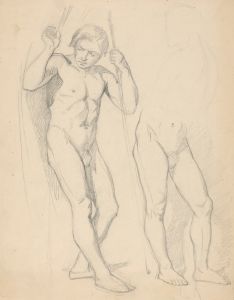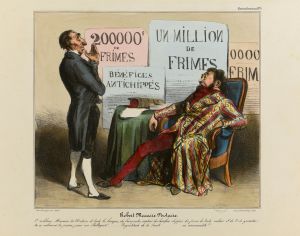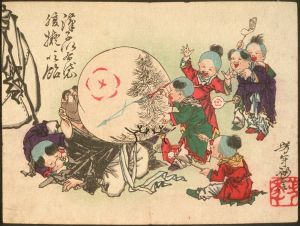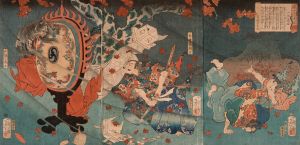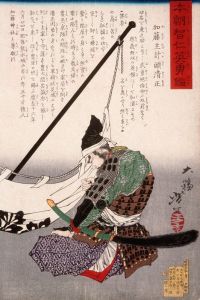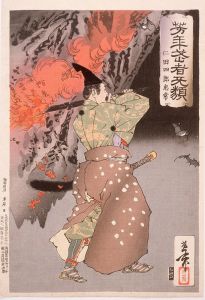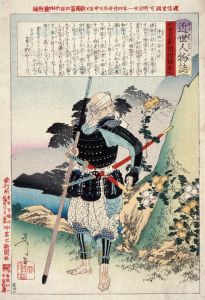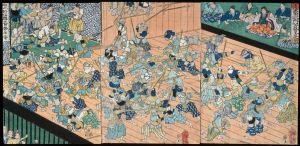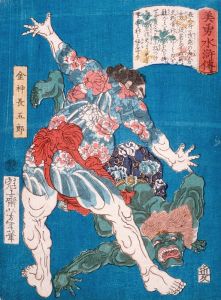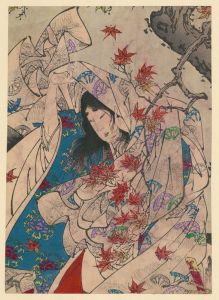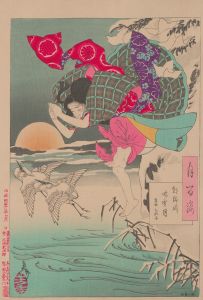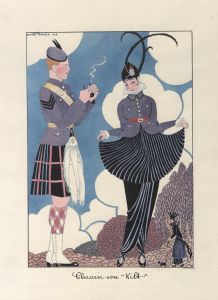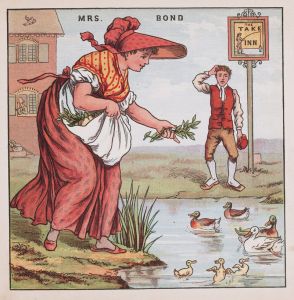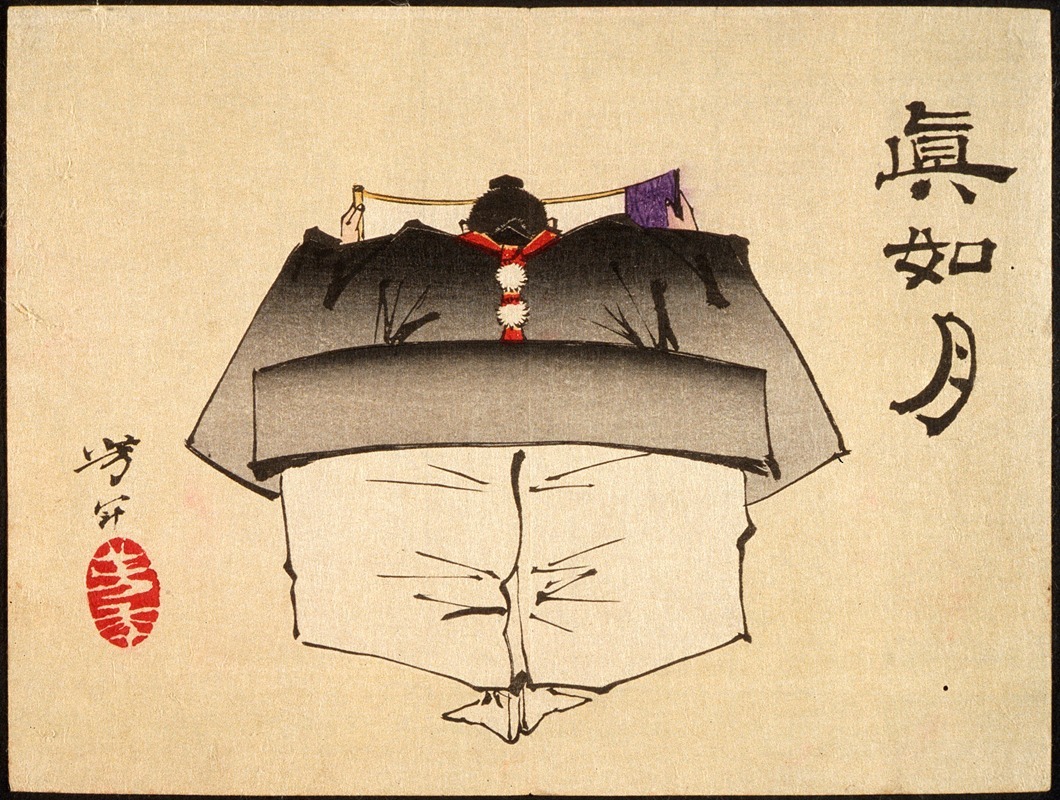
Fuwa Banzaemon in a Tanzen Costume
A hand-painted replica of Tsukioka Yoshitoshi’s masterpiece Fuwa Banzaemon in a Tanzen Costume, meticulously crafted by professional artists to capture the true essence of the original. Each piece is created with museum-quality canvas and rare mineral pigments, carefully painted by experienced artists with delicate brushstrokes and rich, layered colors to perfectly recreate the texture of the original artwork. Unlike machine-printed reproductions, this hand-painted version brings the painting to life, infused with the artist’s emotions and skill in every stroke. Whether for personal collection or home decoration, it instantly elevates the artistic atmosphere of any space.
"Fuwa Banzaemon in a Tanzen Costume" is a woodblock print by the renowned Japanese artist Tsukioka Yoshitoshi, who is celebrated for his innovative contributions to the ukiyo-e genre during the late Edo and early Meiji periods. Yoshitoshi, born in 1839 and active until his death in 1892, is often regarded as one of the last great masters of the ukiyo-e tradition. His works are known for their dynamic compositions, vivid use of color, and psychological depth, reflecting the turbulent times of Japan's transition from a feudal society to a modern state.
This particular print is part of Yoshitoshi's series "New Forms of Thirty-Six Ghosts" (Shinkei Sanjurokkaisen), which was published between 1889 and 1892. The series explores supernatural themes and ghostly apparitions, drawing inspiration from Japanese folklore, kabuki theater, and historical tales. Each print in the series captures a moment of drama and intrigue, often featuring well-known figures from Japanese history and legend.
The subject of this print, Fuwa Banzaemon, is a character rooted in Japanese folklore and kabuki theater. He is often depicted as a villainous samurai, embroiled in tales of rivalry and revenge. The "tanzen" costume he wears in the print is a type of traditional Japanese winter garment, characterized by its padded and quilted design, which was commonly worn during the Edo period. The choice of costume adds a layer of historical authenticity and cultural context to the depiction.
Yoshitoshi's portrayal of Fuwa Banzaemon is notable for its attention to detail and expressive quality. The artist employs a rich color palette and intricate line work to convey the character's intense demeanor and the dramatic tension of the scene. The background and composition are carefully crafted to enhance the overall atmosphere, drawing the viewer into the narrative.
The "New Forms of Thirty-Six Ghosts" series, including this print, reflects Yoshitoshi's fascination with the supernatural and his ability to blend traditional Japanese artistic techniques with modern influences. His work during this period is often seen as a response to the rapid changes occurring in Japan, as the country opened up to Western influences and underwent significant social and political transformations.
Yoshitoshi's legacy as an artist is marked by his ability to capture the complexities of human emotion and the supernatural, making his prints highly sought after by collectors and scholars alike. "Fuwa Banzaemon in a Tanzen Costume" stands as a testament to his skill and creativity, offering a glimpse into the rich tapestry of Japanese culture and the enduring appeal of its folklore and theatrical traditions.





